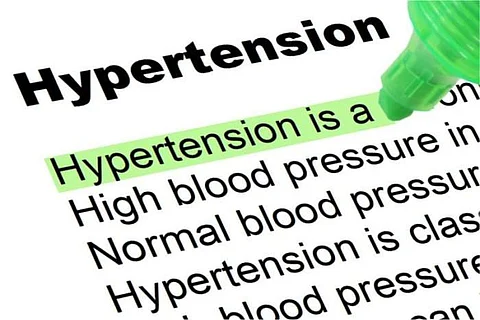

May 17 is observed globally as the World Hypertension Day. The International Society of Hypertension has started a global awareness initiative called as May Measurement Month (MMM) to increase public awareness about the detection and appropriate treatment of this silent killer.
Know Your Numbers – everyone should measure and know their own personal BP, blood sugar, cholesterol and related numbers so that they can be proactive about their own health. The term ‘hypertension’ refers to an increase in the force that the blood exerts against the walls of the blood vessels as it flows through the blood vessel. The two factors which affect the blood pressure is the amount of blood pumped by the heart and the resistance faced by the blood as it flows through the arteries. The more the blood pumped by the heart and the narrower the arteries, the higher will be the blood pressure.
Hypertension is a common condition and studies in India have shown that around 30% of adults suffer from hypertension with a marked increase in urban areas as compared to rural India. The risk of hypertension increases with age. Risk also increases if an individual is overweight, has a family history of hypertension, has wrong food habits, leads a sedentary life and smokes or drinks alcohol.
Disregarding hypertension is dangerous. Hypertension puts extra strain on your heart and blood vessels, which if left untreated can lead to significant health problems. Complications resulting from uncontrolled high blood pressure can include permanent and significant disability.
The top ten risks of ignoring hypertension.
1. Damage to the arteries, which may harden and thicken under the increased pressure.
2. Aneurysm, which occurs when a part of an artery in the brain balloons out from the continuous pressure. This can lead to a rupture and a stroke.
3. Stroke, which is the result of the reduction of blood supply to the brain due to blockage from a clot or rupture of an aneurysm.
4. Heart attack, from the hardening or thickening of arteries leading to blockage.
5. Congestive heart failure, when the heart has to pump blood against the higher pressure leading to thickening of the heart muscle and eventually leading to failure of pumping enough blood to meet the body’s needs.
6. Kidney failure, from damage to the small blood vessels in the kidney which stops the kidney from working properly. In an advanced stage, will require regular dialysis and kidney transplant.
7. Loss of vision, from damage to the small blood vessels in the retina of the eye.
8. Metabolic syndromes, from associated high levels of insulin, increased levels of cholesterol and fat deposition around the waist. These increase the risk of developing diabetes, heart disease and stroke.
9. The trouble with memory and other mental problems like confusion, headaches, convulsions and even dementia.
10. Sexual dysfunction in the form of impotence can also occur in long-standing cases of hypertension.
So on this World Hypertension Day, let us resolve to have a regular check-up for hypertension especially after the age of 40. And if hypertension is detected, it will be wise to start management in the form of lifestyle modification and treatment with appropriate medication immediately to prevent the ‘silent killer’ from making the next move!
